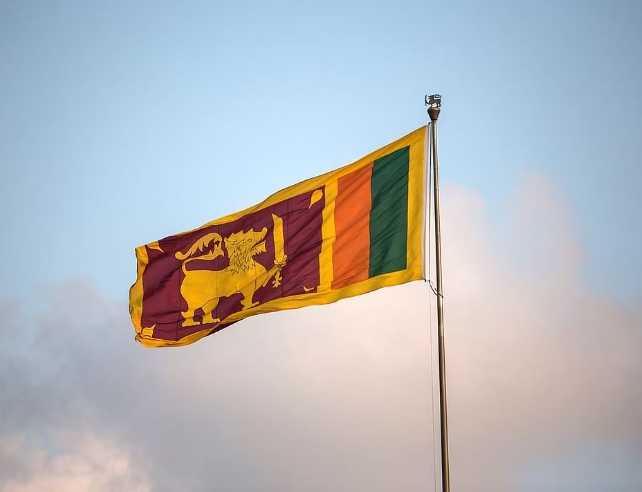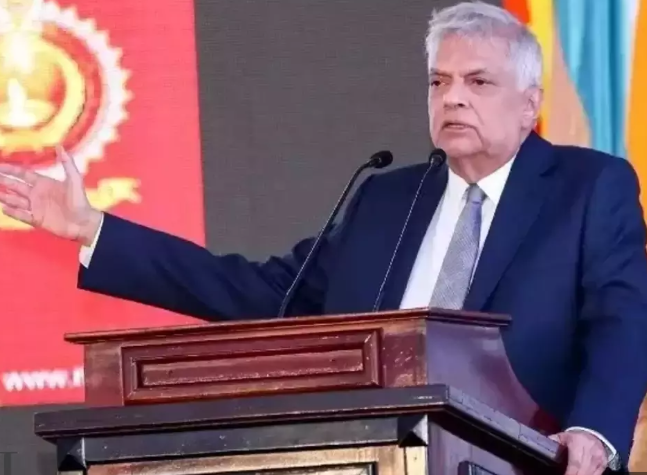Sri Lanka Economic Setback: Cabinet Approves ‘Low Income Country’ Downgrade
Sri Lanka’s recent economic turmoil has prompted a significant decision by the cabinet to seek a downgrade of the nation’s economic status to “low income country” classification. This strategic move, aimed at facilitating access to concessional funding from international organizations, underscores the severity of Sri Lanka’s economic challenges and the urgent need for external assistance.

With the country’s economy reeling from a series of crises, including an annual 8.4 percent contraction in the June quarter, Sri Lanka finds itself grappling with profound economic distress. Per capita GDP, which stood at $3,815 in 2021, had previously positioned Sri Lanka within the lower-middle economy category as per the World Bank’s classification.
Cabinet spokesman Bandula Gunawardane elucidated on the rationale behind the cabinet’s decision, emphasizing the critical nature of Sri Lanka’s financial predicament. International organizations have conveyed to Sri Lankan authorities that reclassification as a “low income country” would streamline access to much-needed funding, providing a lifeline amidst the nation’s economic woes.
The challenges facing Sri Lanka are multifaceted, stemming from a confluence of factors including the adverse impacts of the COVID-19 pandemic on the tourism sector, diminished remittances from overseas workers, soaring oil prices, populist tax policies, and a protracted ban on chemical fertilizer imports, which dealt a severe blow to the agriculture sector.
Of particular concern is the acute shortage of foreign currency reserves, exacerbating difficulties in securing essential imports such as food, fuel, and medicine. This scarcity, coupled with a sharp depreciation of the Sri Lankan rupee and spiraling inflation, has further exacerbated the economic downturn, placing immense strain on households and businesses alike.
Against this backdrop of economic turmoil, the Central Bank of Sri Lanka has endeavored to navigate the crisis by maintaining policy rates steady. However, bleak forecasts loom large, with the central bank projecting an alarming 8.7 percent contraction in gross domestic product for the year 2022, underscoring the magnitude of the challenges ahead.
While the decision to seek a downgrade in economic status signals a pragmatic approach to accessing much-needed financial assistance, it also underscores the urgency of implementing comprehensive reforms to address systemic vulnerabilities and restore economic stability. The willingness to seek international support reflects a recognition of the severity of Sri Lanka’s economic predicament and a commitment to exploring all available avenues for relief.
As it embarks on this pivotal juncture in its economic trajectory, collaboration with international partners, prudent policy measures, and sustained efforts to revitalize key sectors will be imperative to charting a path towards recovery and resilience. While the road ahead may be fraught with challenges, the resolve to confront adversity head-on offers hope for a brighter future for the people of Sri Lanka.
The response from the World Bank, upon its proposal, remains awaited, underscoring the importance of international cooperation in addressing the nation’s economic challenges. In the face of adversity, solidarity and collective action will be vital in navigating the path towards sustainable economic prosperity and social well-being for all them.
In light of the cabinet’s decision to pursue a downgrade in economic status, it is essential to recognize the broader implications and potential ramifications of such a move. While the immediate objective is to facilitate access to concessional funding from international organizations, the decision also carries significant symbolic and practical implications for Sri Lanka’s economic landscape.
By seeking reclassification as a “low income country,” it acknowledges the severity of its economic challenges and the need for external support to navigate through these turbulent times. However, it also underscores the urgency of implementing structural reforms and policy interventions to address the root causes of the economic crisis and foster sustainable growth in the long term.
Stay up to date with every latest news-click here



